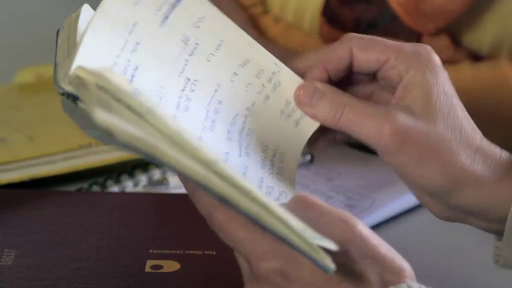1.1 Keeping a study journal

Transcript
Keeping a study journal, lab notebook or field notebook is a vital skill for any scientist – beginners to the subject often underestimate their importance.
In the video, Janet Sumner and Hazel Rymer, Dean of Science at The Open University, discuss why your notes are so important. Download the activity booklet [Tip: hold Ctrl and click a link to open it in a new tab. (Hide tip)] for this course, it includes everything you’ll need to make your personal notes on the experiments. If you would rather use your own journal, that’s fine – the type of record that you keep of your experiments is less important than the clarity and detail of your notes.
A good rule of thumb is that your notes should contain enough information that someone else could use them to duplicate your work, or that you could read through them years later and remind yourself of the exact procedures that you followed. It is always far better to have recorded too much information and not need it, than to not record enough and find that a vital piece of information is missing.
